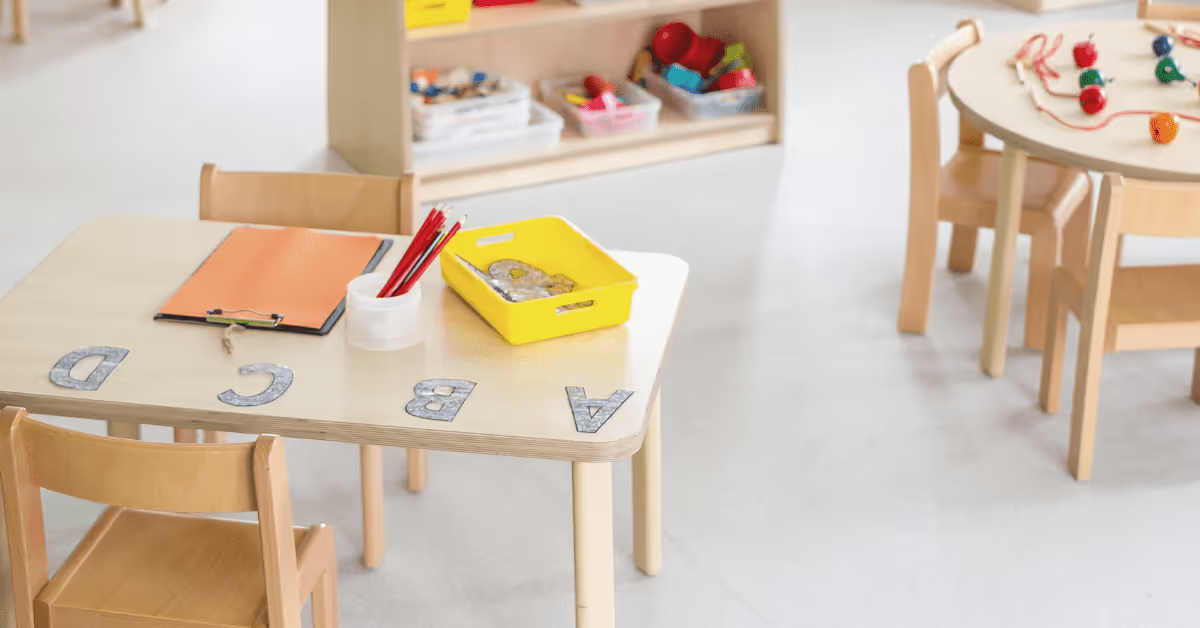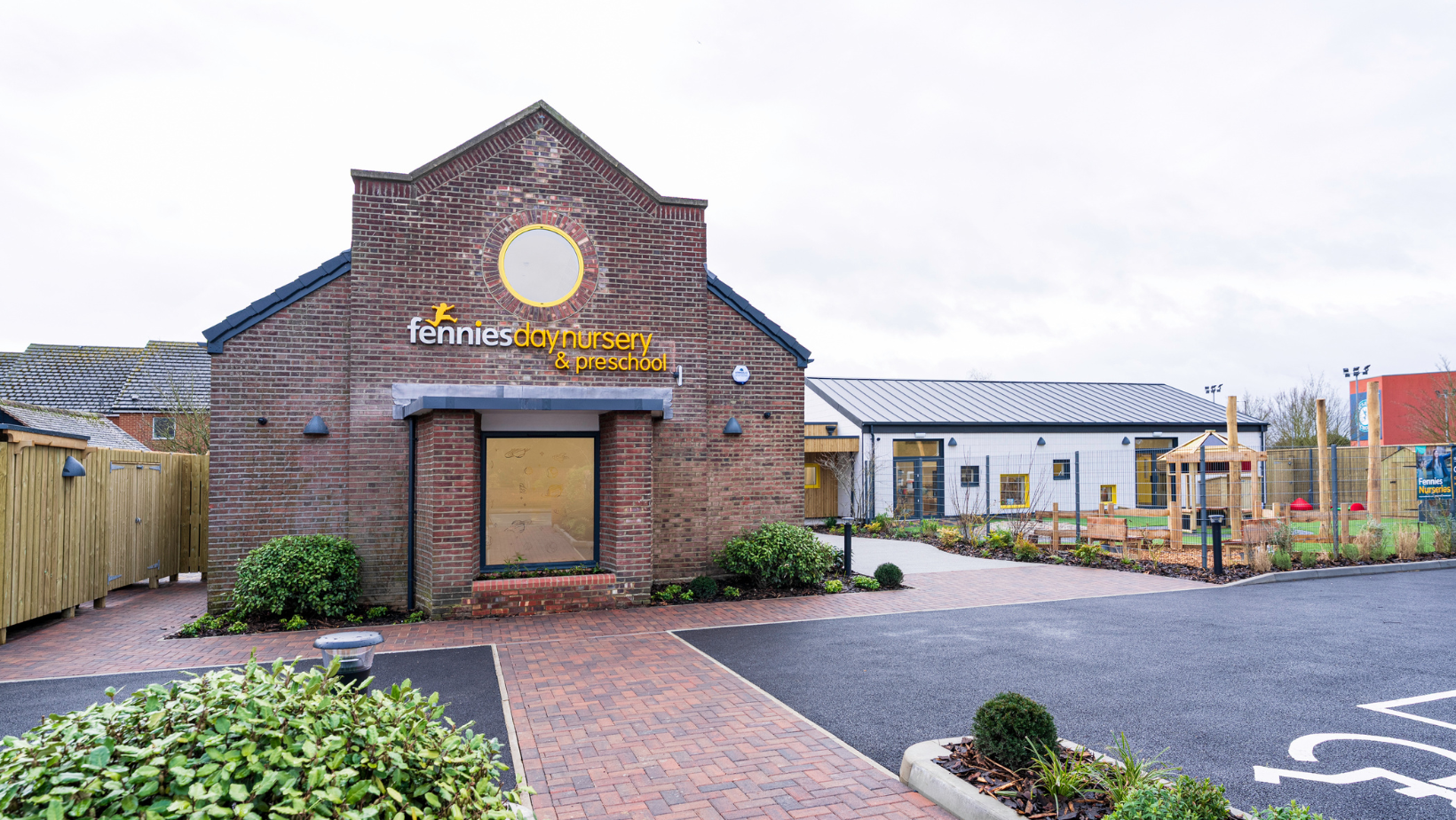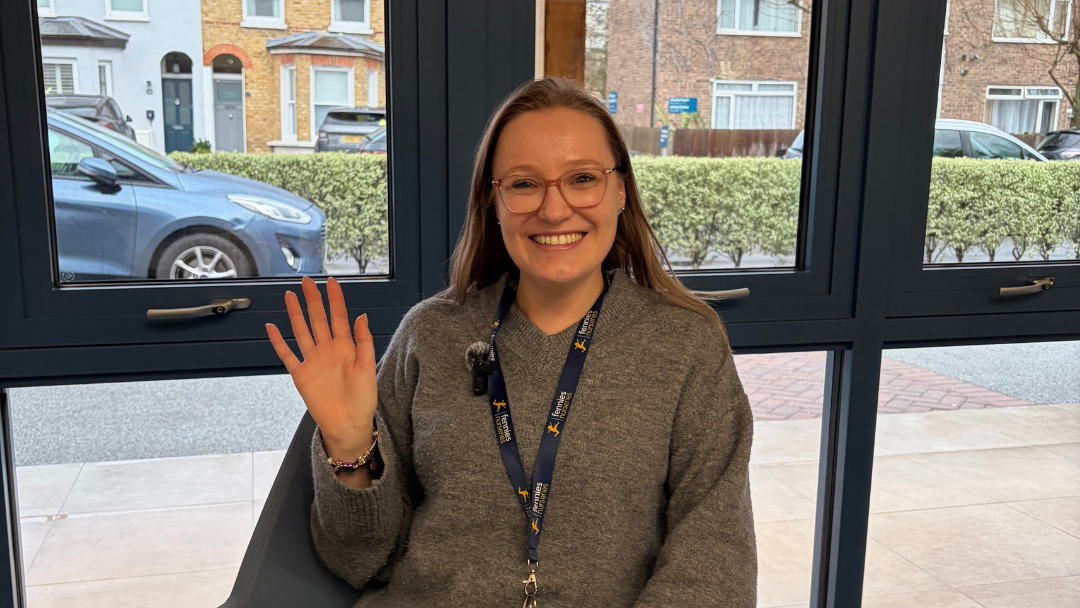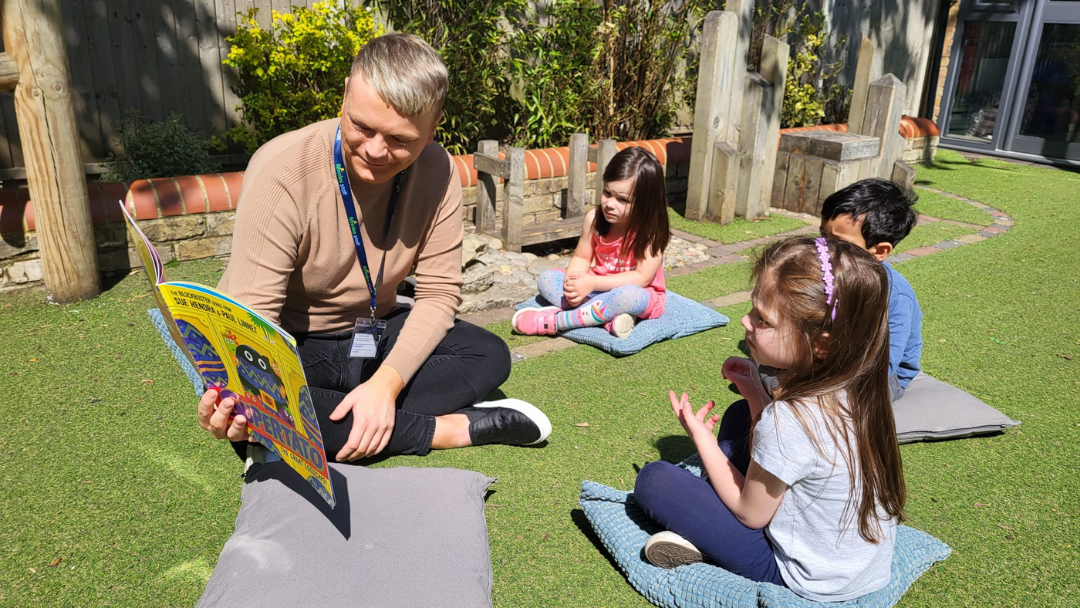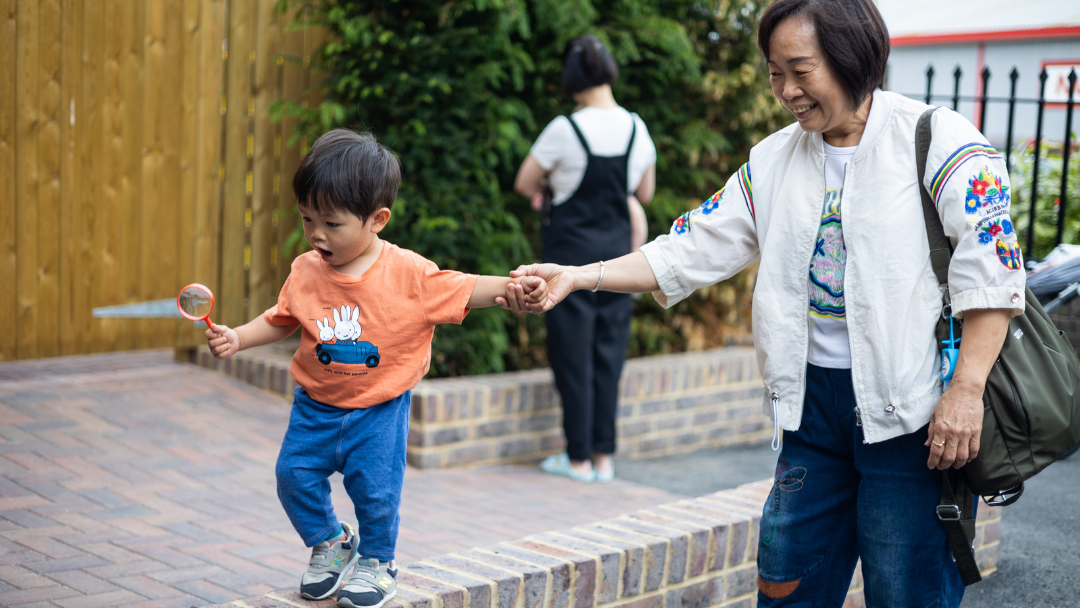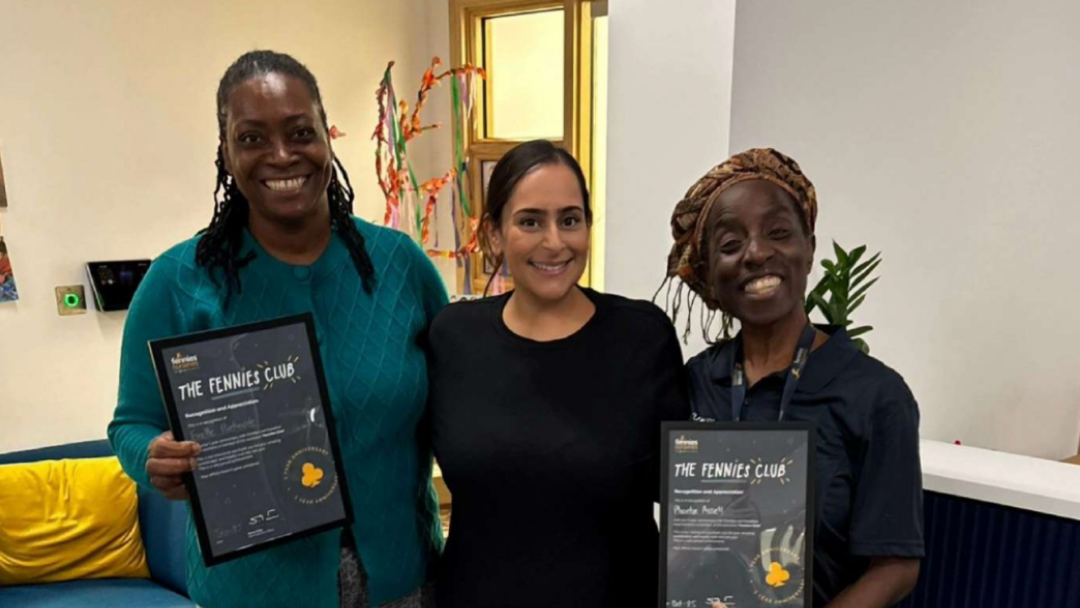There's nothing quite as memorable as your child's first words. Whilst reaching this milestone is seen as the pinnacle, a lot of elements are at play long before this happens to piece together everything your child needs to develop their language. One of the most important factors is your child's environment.
Discover how to create a language rich environment that encourages communication and develops your child's vocabulary, whether at home or at nursery. Implementing these strategies can support Early Years development and help toddlers reach speech and language milestones with confidence.
What Is A Language Rich Environment?
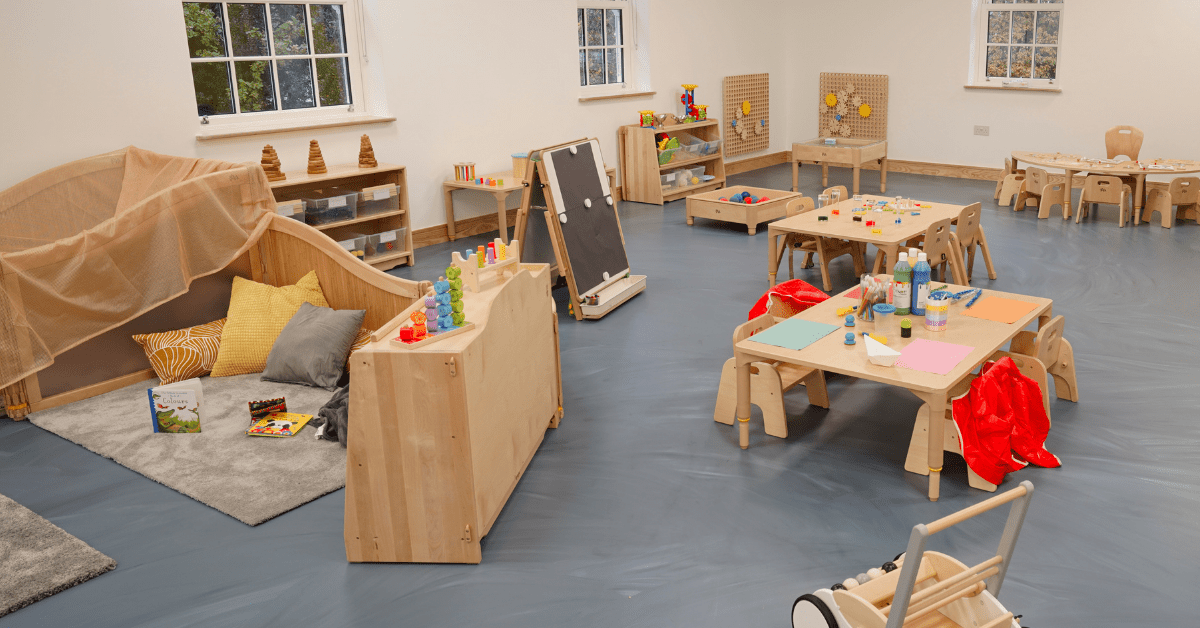
The quality of a child's environment is incredibly important when it comes to their learning and development, which is why it's often referred to as their 'third teacher.' Many things come into play as children develop their speech and language skills, but a language rich environment will not only lay the groundwork for these skills but encourage children to flourish into confident little learners.
A language rich environment is a thoughtfully designed learning space that actively promotes and encourages the enhancement of children’s communication, speech, and overall language development. It takes into account the physical, emotional, and sensory aspects of a space, the resources provided, and the interactions with adults that take place. Using age-appropriate toys and resources, such as wooden toys or sensory materials, can further stimulate language development and cognitive growth in toddlers and preschool children.
Not only do children develop their physical skills by exploring their environment through play, but they also form imagination and language skills. This is why it’s important to consider multiple factors when creating a learning space at a nursery or home. Activities like creative play and edible sensory play provide excellent opportunities for children to explore, experiment and communicate effectively.
How Does A Language Rich Environment Support Speech And Language Development?
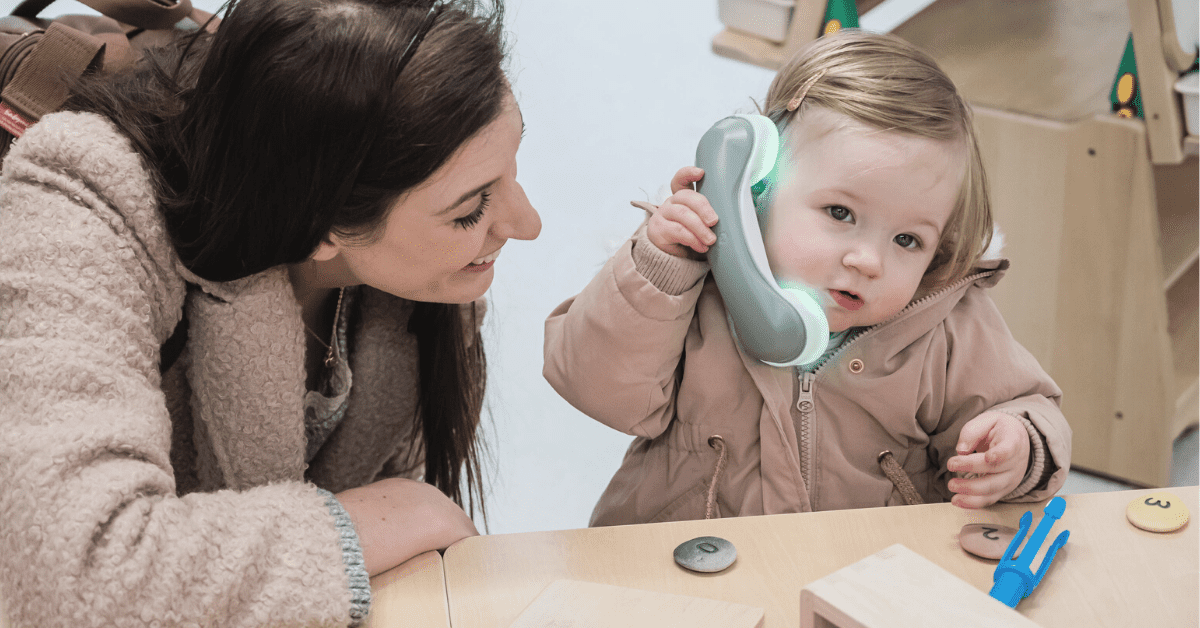
From birth, babies are instinctively wired to learn language. From babbling to showing understanding of what they hear, speech and language development quickly begins to emerge.
Strong early language skills act as a gateway to most other forms of learning and communication. They support problem-solving, social development and emotional regulation. For example, understanding and using language helps children communicate their feelings and get help when needed. You can see more on social development and how this ties into overall Early Years development.
"Speech and language development is a gateway to other skills – even early learning in maths, for example, tends to rely heavily on language skills. It’s also a gateway to social and personal development, such as emotion regulation as language allows a child to communicate to someone else how they’re feeling, which helps them to regulate their own emotions and to get help for others." - Dr Sam Wass, Child Development Expert for Fennies
Key Aspects To Consider
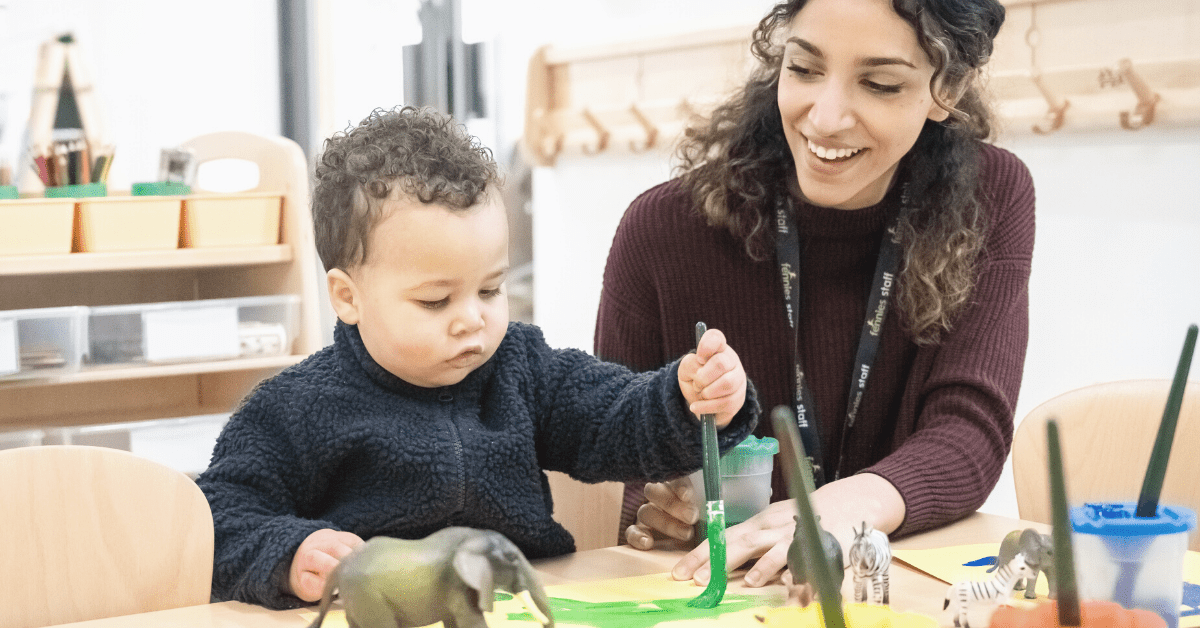
The Physical Environment: Furniture, resources and layout influence how children develop speech. Using open-ended resources, storybooks and labelled areas in your room can bring language to the forefront.
The Emotional Environment: A safe, nurturing and stimulating space supports learning. When children feel secure, they are more confident to explore and engage with language. Implementing calm, structured routines also supports emotional regulation and helps toddlers focus on learning.
Adult Interactions: Children learn language from responsive and enthusiastic adults. Research shows that high-quality interactions, asking open-ended questions and sustained shared thinking greatly enhance communication skills.
"Without adults who are tuned in to children and their interests, children will become uninterested and understimulated. We need to be having those lovely interactions, using new words and using sustained shared thinking (plus open-ended questioning) to draw out children’s thinking and understanding." - Ruth, Education Advisor
How Does A Language Rich Environment Support Literacy Skills?
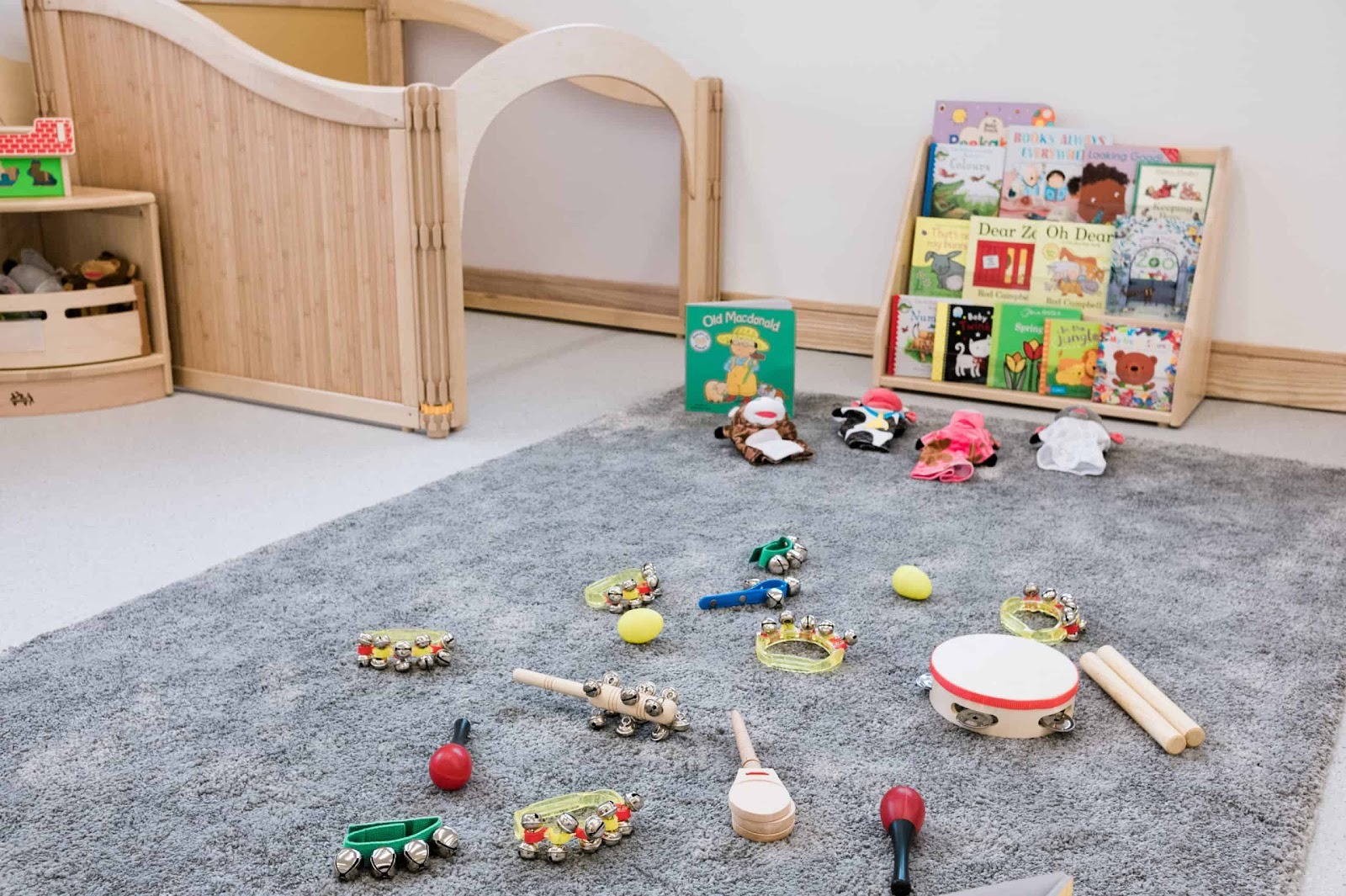
Communication, language and literacy lay the foundation for all future learning. Reading books regularly introduces children to different places, cultures and ideas. For example, exploring culturally diverse books broadens empathy and compassion.
Having a mix of fiction and non-fiction, accessed daily, builds children’s literacy skills. Linking books to children’s interests, using expressive reading voices and incorporating repetition, rhythm and rhyme supports memory and engagement.
Visual cues also support literacy: labels on storage baskets, pegs, and placemats help children connect words with meaning. This encourages early reading and writing skills, as explored in The value of reading in early years development. Adding writing stations and encouraging children to explore mark-making also strengthens early literacy and fine motor skills.
How To Create A Language Rich Environment In A Nursery
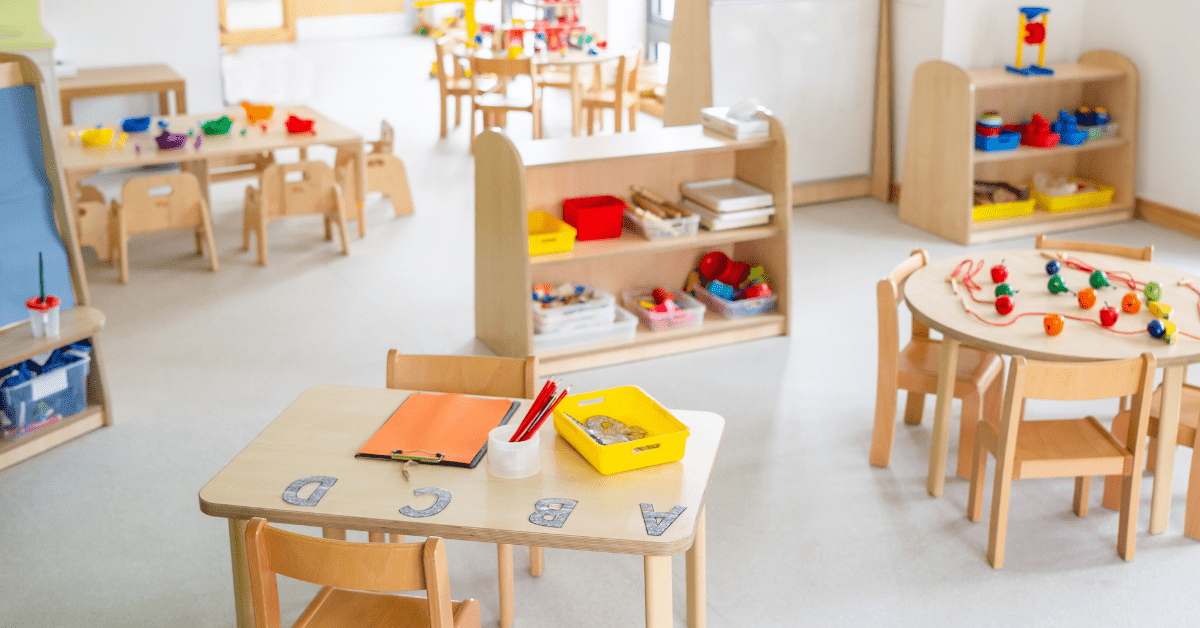
Create A Communication Audit: Observe where conversations happen, which staff interact most, which resources are used, and children’s interests. Adjust spaces for quiet reflection and imaginative play.
Use Open-ended Resources: Encourage problem-solving, new vocabulary, and conversation by providing materials children can use in many ways. Incorporate creative play and junk modelling to spark imagination and communication.
Use Labels & Displays: Surround spaces with words and visual prompts to reinforce literacy, introduce new vocabulary and support children in connecting written words to meaning.
Provide Cosy Book Corners: Make storybooks accessible and create a relaxing, inviting reading area where children can enjoy books independently or with adults, fostering a love of reading.
How To Create A Language Rich Environment At Home
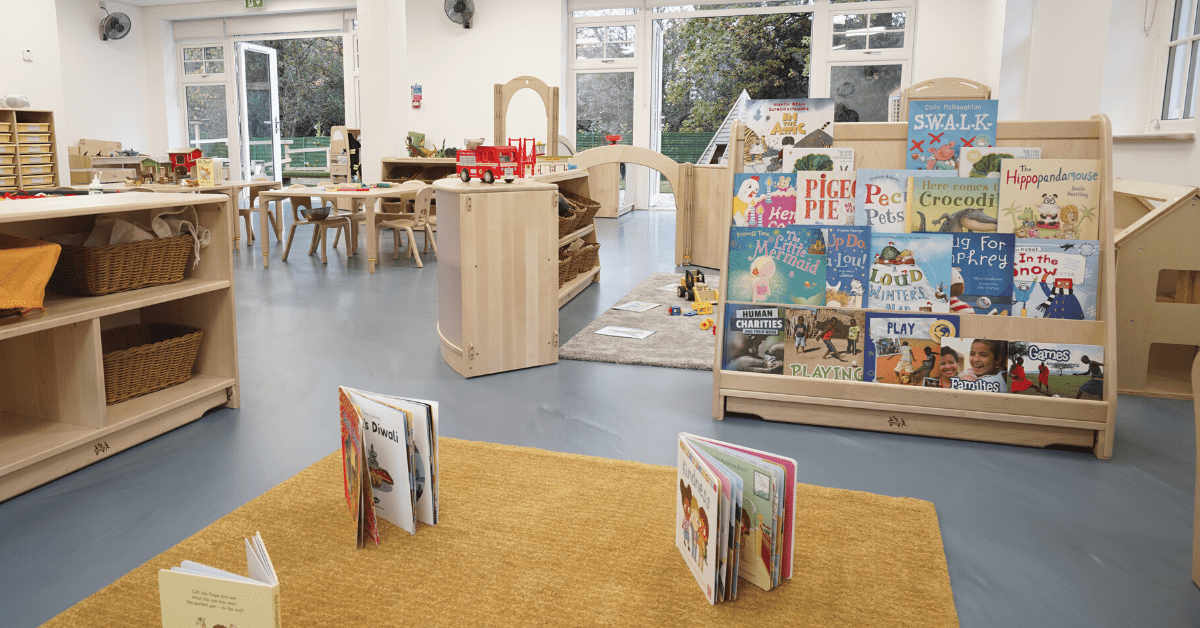
Consider Your Interactions: Children learn language by watching, listening and playing with others. You can make everyday moments learning opportunities by intentionally engaging with your child.
Avoid Overstimulation: Children need calm spaces where they can focus, listen and process information. Reducing background noise and clutter makes it easier for them to absorb new words and concepts.
Encourage Role Play: Pretend games are a fun way to build imagination, confidence and language skills. Let your child lead the scenarios, narrate actions and introduce new vocabulary. Activities like creative play provide a natural context for learning.
Use Body Language: Exaggerated gestures, facial expressions and lively tones help convey meaning and keep your child engaged. This supports understanding, reinforces new words, and encourages responses.
Create A Home Book Corner: Keep books within easy reach to nurture a love of reading. Include a mix of fiction, non-fiction and culturally diverse stories to broaden vocabulary and support early literacy. Reading together daily builds listening skills, comprehension and a strong foundation for language development.
FAQ
Subscribe to our newsletter
Stay up to date with Fennies news


